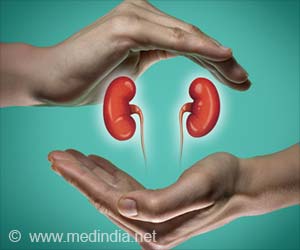Exercise can help reduce postpartum depression and anxiety, especially when started within 12 weeks of childbirth.

- Exercise for a total of 80 minutes per week can reduce postpartum depression and anxiety
- Physical activity is a safe, affordable alternative to medication for maternal mental health
- Exercising within 12 weeks postpartum improves mood and reduces depression risk
Impact of postpartum physical activity on maternal depression and anxiety: a systematic review and meta-analysis
Go to source).
Postpartum Depression
Maternal depression and anxiety are common after giving birth. Due to this, the mother is unable to take care of herself and focus completely on taking care of her baby and their bond. This in turn affects the child’s cognitive, emotional, and social development.According to new research published in the British Journal of Sports Medicine found that exercise-only programmes can reduce the severity of the ‘baby blues’ and the risk of maternal depression in mothers after giving birth.
Doing exercises for a total of 80 minutes per week can significantly help with overcoming depression. Moderate-intensity exercises like brisk walking, water aerobics, stationary cycling, and resistance training with bands, weights, or body weight can be performed.
Exercise vs. Medication for Postpartum Mental Health
Therapeutic drugs and counseling are given to treat depression and anxiety in the first weeks and months after giving birth. However, they are associated with side effects, incomplete treatment, difficulty in accessing the treatment, and high cost.From the previous research findings, doing any type of physical activity can be an effective and affordable treatment for maternal depression and anxiety. However, it is still not proven to reduce the severity of ‘baby blues’ in the first few weeks after giving birth or lower depression after several months of postpartum.
Study Analysis of Exercise in Postpartum Depression
The researchers analyzed 35 studies up to January 2024 to understand how different treatments and exercises impact depression and anxiety after 12 weeks and within 12 months of giving birth.Of all, 35 studies involving 4072 participants from 14 countries were included in the systematic review. The frequency of exercise interventions ranged from 1 to 5 days a week, lasting anything from 15 up to 90 minutes a session. They included aerobic exercise, strength training, stretching, and yoga.
How Exercise Boosts Postpartum Mental Health
Regular physical activity helped reduce symptoms of depression and anxiety when compared to no exercise. It also reduced the risk of developing severe postpartum depression. The best results were found when the mother started exercising within 12 weeks of delivery.The more frequent the exercise, the better the improvement in mood, with a noticeable difference for those doing at least 80 minutes of moderate exercise, spread across four days each week. However, the study has some limitations as more studies were conducted in high-income countries and it is still unclear how well exercise can reduce combined symptoms of depression and anxiety.
This research concluded that exercise within the first three months after giving birth can be effective safe, accessible, and inexpensive to support postpartum mental health.
Reference:
- Impact of postpartum physical activity on maternal depression and anxiety: a systematic review and meta-analysis - (https://bjsm.bmj.com/content/early/2024/10/07/bjsports-2024-108478)
Source-Medindia















